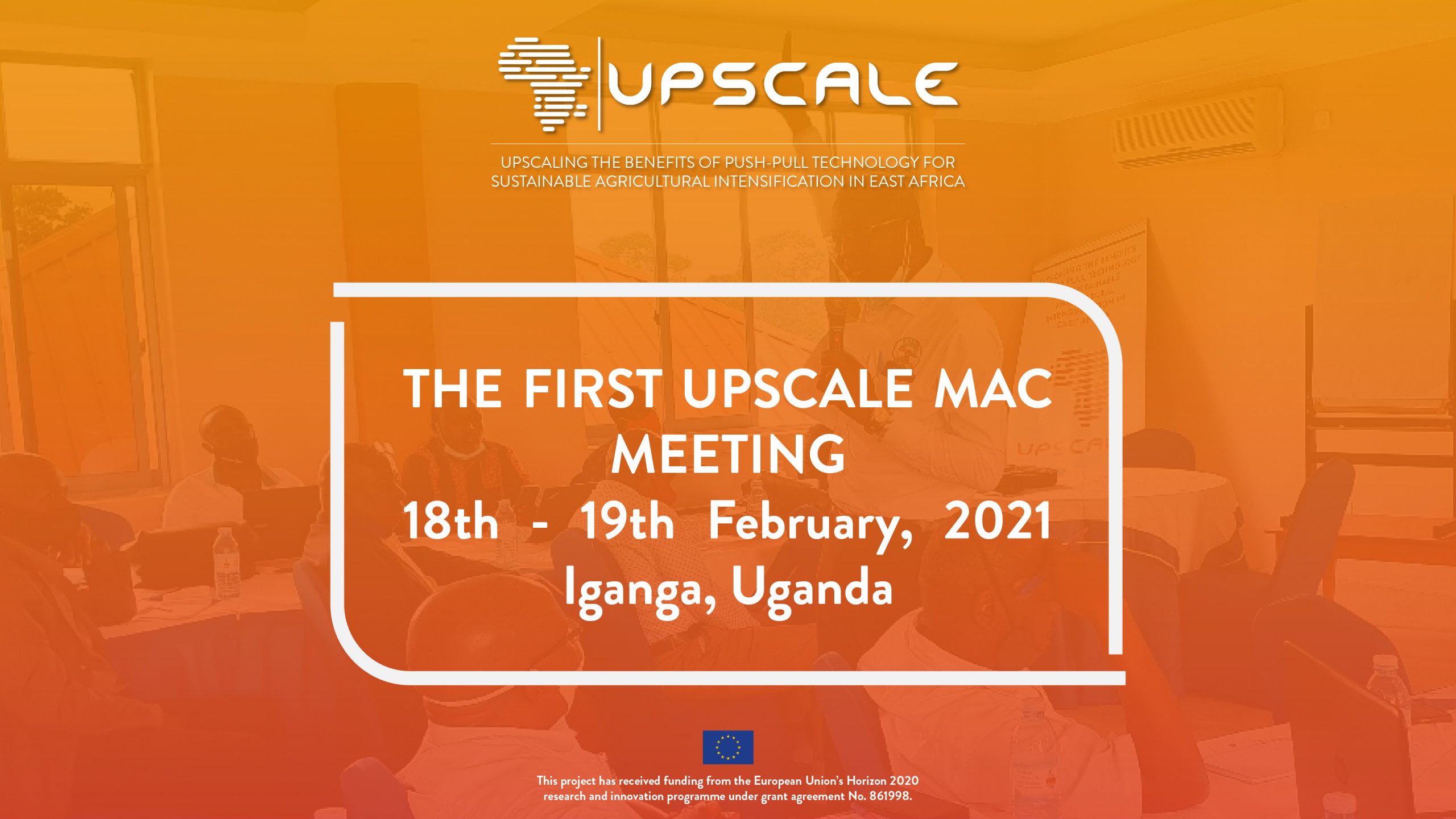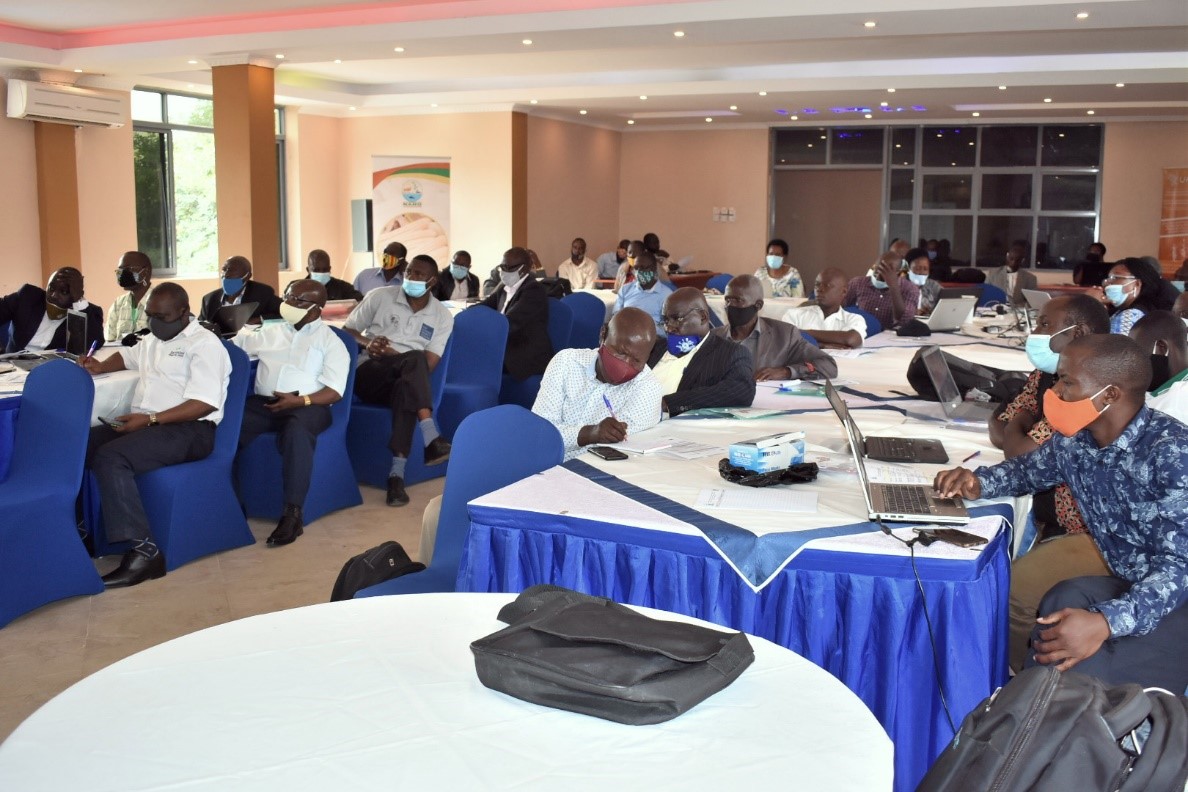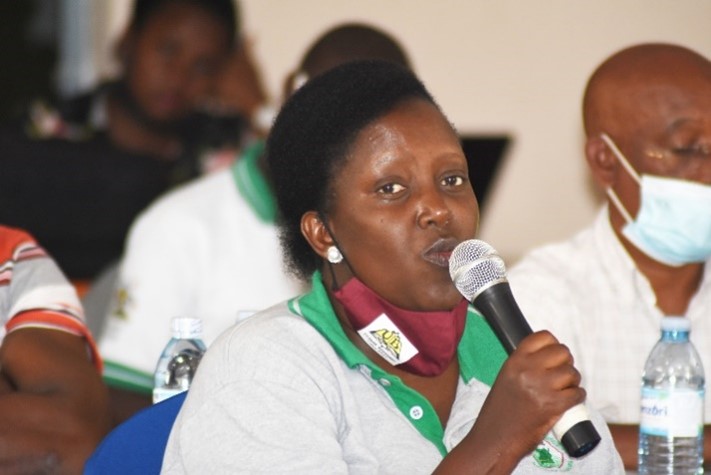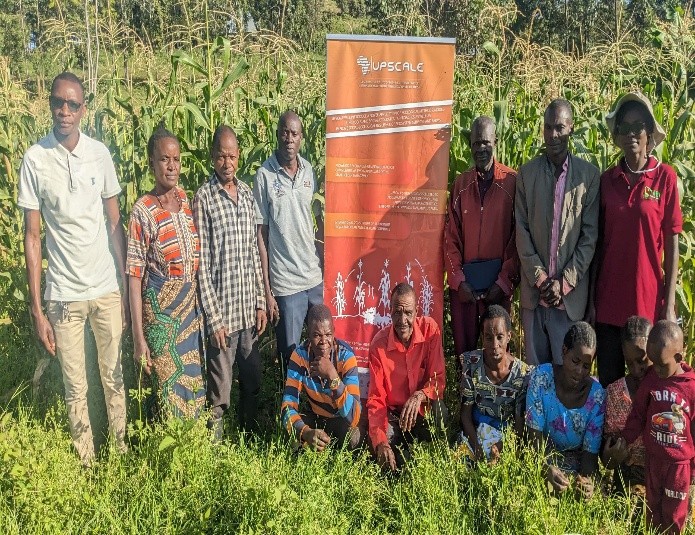UPSCALE enters 2021 with a busy agenda for farmers in East Africa. Throughout the project UPSCALE consortium will establish and facilitate a multi-actor community (MAC) of practice to raise awareness, enable and facilitate trans-disciplinary research and cooperation and information sharing among stakeholders.
First such meeting has been held by NARO (NaCRRI) on 18th -19th February 2021 in Iganga, Uganda. It has gathered key stakeholders from farmers to academia with the aim of encompassing those in the value chain that can make the most impact. This MAC will help to form a participative strong ground for large-scale dissemination and sustainable uptake of push-pull technology and other agricultural innovations.
With the warm welcome by Winnie Nanteza, Dr. Abubaker Muwonge and Dr. Charles of NARO/NaCRRI, UPSCALE was presented to the participants. Additionally, the work of NARO/NaCCRI in Uganda was presented introducing the main WHY in HOW of the project. Why it is important to participate in UPSCALE, exchange knowledge and ultimately how to benefit from the developed technologies. An important overview of NARO’s mandate, maize production and current challenges were showcased and Dr. Lwanga has reechoed that project areas are hotspots for striga, backing the need for an integrated approach towards addressing striga, fall armyworm and stem borers. He also revealed that NARO has released Imazpr – resistant maize varieties which can be adopted in this project and explained that maize resistant to striga is in the pipeline to further buffer farmers against the ‘witchweed’.
With key speakers and future MAC representatives, such as Mr. Yoga Michael (the Chief Administrative Officer Iganga), Dr. Girma Hailu (icipe), Dr. Benjamin Ombok (Maseno University), Adeline Muheebwa (AUWPAE), Stephen Magume (MAAIF) as well as host-farmer John Ssebuliba, the participants were able to both hear about what UPSCALE technology exactly implies, how the social, economic and gender issues will be addressed as well as to experience first-hand how one push-pull field operates.
Building on John’s and their own experiences, MAC participants’ main findings were that there are difficulties in adopting the technology in the community. Especially youth and female farmers are identified as part of the community so far insufficiently engaged yet with great potential. There is an opportunity to engage youth in multiplication of planting materials for desmodium and in general, pain points were identified in terms of trainings that need to be conducted to communicate the benefits of push-pull technology as well as types of fields that should also be tackled (going beyond striga, stem borers and fall armyworm control). Moreover, there is a need for better propagation of seed of desmodium and napier grass and need to promote push-pull technology as a package that integrates other yield enhancing technologies. Lastly, there is a vast number of farmers who rent land for cultivation and face difficulties in maintenance of the desmodium seed and shrinking of the land for their crops due to expansion of sugarcane fields.
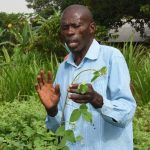
Thanks to these inputs and many to come, UPSCALE will showcase first-hand the conditions and challenges that farmers face and gain concrete directions on how its work needs to be streamlined in the future – both in terms of application of push-pull technology as well as educating farmers on how to develop strategies, adopt the technology strategically and ultimately, reap the benefits and engage wider community of stakeholders along the value chain.

